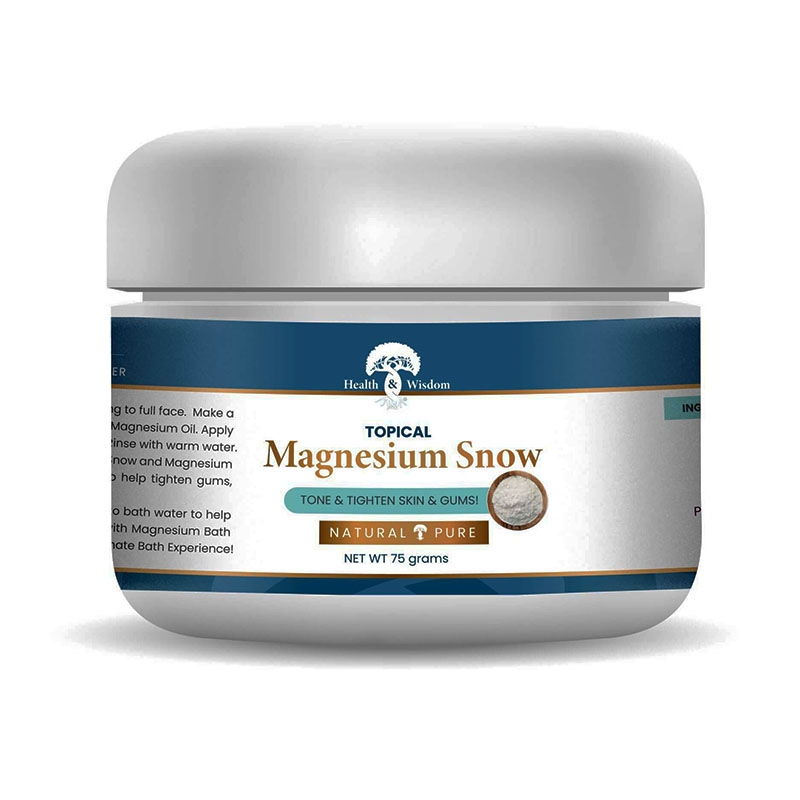No products in the cart.
Magnesium and Glutathione
by Dr. Mark Sircus, Ac., OMD, DM (P)
Director International Medical Veritas Association
Doctor of Oriental and Pastoral Medicine
The involvement of free radicals in tissue injury induced by Mg deficiency[i] causes an accumulation of oxidative products in heart, liver, kidney, skeletal muscle tissues and in red blood cells.[ii] Magnesium is a crucial factor in the natural self-cleansing and detoxification responses of the body. It stimulates the sodium potassium pump on the cell wall and this initiates the cleansing process in part because the sodium-potassium-ATPase pump regulates intracellular and extracellular potassium levels. Potassium regulation is of course crucial because potassium acts as a counter flow for sodium’s role in nerve transmission. The body must put a high priority on regulating the potassium of the blood serum and this becomes difficult when magnesium levels become deficient.[iii]
Because of these crucial relationships, when magnesium levels become dramatically deficient we see symptoms such as convulsions, gross muscular tremor, atheloid movements, muscular weakness, vertigo, auditory hyperacusis, aggressiveness, excessive irritability, hallucinations, confusion, and semicoma. A magnesium deficiency can cause the body to lose potassium and this our bodies cannot afford. Within the cell wall is a sodium pump to provide a high internal potassium and a low internal sodium. Magnesium and potassium inside the cell assist oxidation, and sodium and calcium outside the cell wall help transmit the energy produced. The healthy cell wall favors intake of nutrients and elimination of waste products.
Magnesium protects cells from aluminum, mercury, lead, cadmium, beryllium and nickel, which explains why re-mineralization is so essential for heavy metal detoxification and chelation. Magnesium protects the brain from toxic effects of chemicals thus it is highly likely that low total body magnesium contributes to heavy metal toxicity in children and is a strong participant in the etiology of learning disorders. Without sufficient magnesium, the body accumulates toxins and acid residues, degenerates rapidly, and ages prematurely. Recent research has pointed to low glutathione levels being responsible for children’s vulnerability to mercury poisoning from vaccines.[iv]
It seems more than reasonable to assume that low levels of magnesium would also render a child vulnerable. And in fact we find out that glutathione requires magnesium for its synthesis.[v] Glutathione synthetase requires a-glutamyl cysteine, glycine, ATP, and magnesium ions to form glutathione.[vi] In magnesium deficiency, the enzyme y-glutamyl transpeptidase is lowered.[vii] Data demonstrates a direct action of glutathione both in vivo and in vitro to enhance intracellular magnesium and a clinical linkage between cellular magnesium, GSH/GSSG ratios, and tissue glucose metabolism.[viii] Magnesium deficiency causes glutathione loss, which is not affordable because glutathione helps to defend the body against damage from cigarette smoking, exposure to radiation, cancer chemotherapy, and toxins such as alcohol and just about everything else.
According to Dr. Russell Blaylock low magnesium is associated with dramatic increases in free radical generation as well as glutathione depletion and this is vital since glutathione is one of the few antioxidant molecules known to neutralize mercury.[ix] Thus sadly children receiving thimerosal containing vaccines are sitting ducks to mercury when both magnesium and glutathione levels are low. Also under the shadow of magnesium deficiency too much Nitric Oxide (NO) is produced which in turn may react with superoxide to form a very damaging compound peroxynitrite. Low magnesium levels can induce such excessive NO production that even the glutathione in the red blood cells is damaged. These could provide some possible explanations for why magnesium seems to protect the arteries.[x]
For every molecule of pesticide that your body’ detoxifies, you throw away or use up forever, a molecule of glutathione, magnesium and more, says Dr. Sherry Rogers who goes on to say that, Your body uses nutrients to make this glutathione and it uses up energy as well. Every time we detoxify a chemical, we use up, lose, throw away forever, a certain amount of nutrients.
Magnesium permits calcium to enter a nerve cell to allow electrical transmission along the nerves to and from the brain. Even our thoughts, via brain neurons, are dependent on magnesium.
Dr. Carolyn Dean
When dealing with autism spectrum and other neurological disorders in children it is important to known the signs of low magnesium: restless, can’t keep still, body rocking, grinding teeth, hiccups, noise sensitive, poor attention span, poor concentration, irritable, aggressive, ready to explode, easily stressed. When it comes to children today we need to assume a large magnesium deficiency for several reasons.
- The foods they are eating are stripped of magnesium because foods in general are declining in mineral content in an alarming way.
- The foods many children eat are highly processed junk foods that do not provide real nutrition to the body.
- Because most children on the spectrum are not absorbing the minerals they need even when present in the gut.
- Because the oral supplements doctors rely on are not easily absorbed because they are not in the right form and because magnesium in general is not administered easily orally.
We are going to explore why Daniel Reid, author of the Tao of Detoxification, and Dr. Norman Shealy both believe that administering magnesium transdermally and in foot and regular baths is one of the most powerful detoxification processes that exists. Evidence is mounting that low levels of magnesium contribute to the heavy metal deposition in the brain that precedes Parkinson’s, multiple sclerosis and Alzheimer’s so obviously it can be seen to play an important role in autism spectrum disorders.
Because of its nerve and muscle support, magnesium may also be helpful for nervousness, anxiety, insomnia, depression, and muscle cramps. Thus magnesium is also given as part of a treatment for autism or hyperactivity in kids, Dr. Bernard Rimland of the Autism Research Institute did extensive research on vitamin B6 and magnesium many years ago and found, through double-blind placebo-controlled crossover experiments with 16 autistic children, found statistically significant results. For most children dosage levels of B6 ranged between 300 mg and 500 mg per day. Children and adults tend to sleep better after taking magnesium before bed.
References
[i] Magnesium deficiency (MgD) has been associated with production of reactive oxygen species, cytokines, and eicosanoids, as well as vascular compromise in vivo. Although MgD-induced inflammatory change occurs during “chronic” MgD in vivo, acute MgD may also affect the vasculature and consequently, predispose endothelial cells (EC) to perturbations associated with chronic MgD. As oxyradical production is a significant component of chronic MgD, we examined the effect of acute MgD on EC oxidant production in vitro. In addition we determined EC; pH, mitochondrial function, lysosomal integrity and general cellular antioxidant capacity. Decreasing Mg2+ (< or = 250microM) significantly increased EC oxidant production relative to control Mg2+ (1000microM). MgD-induced oxidant production, occurring within 30min, was attenuated by EC treatment with oxyradical scavengers and inhibitors of eicosanoid biosynthesis. Coincident with increased oxidant production were reductions in intracellular glutathione (GSH) and corresponding EC alkalinization. These data suggest that acute MgD is sufficient for induction of EC oxidant production, the extent of which may determine, at least in part, the extent of EC dysfunction/injury associated with chronic MgD. Effect of acute magnesium deficiency (MgD) on aortic endothelial cell (EC) oxidant production. Wiles ME, Wagner TL, Weglicki WB. The George Washington University Medical Center, Division of Experimental Medicine, Washington, D.C., USA. Life Sci. 1997;60(3):221-36.
[ii] Martin, Hne. Richert, Lysiane. Berthelot, Alain Magnesium Deficiency Induces Apoptosis in Primary Cultures of Rat Hepatocytes. Laboratoire de Physiologie, et Laboratoire de Biologie Cellulaire, UFR des Sciences Mdicales et Pharmaceutiques, Besanon, France. 2003 The American Society for Nutritional Sciences J. Nutr. 133:2505-2511, August 2003
[iii] A magnesium deficiency can cause the body to lose potassium [Peterson 1963][MacIntyre][Manitius], possibly because of a poorly understood effect of magnesium on the efficiency of energy supply to the sodium pump [Fischer].
[iv] Enviroonmental Working Group. http://www.ewg.org/reports/autism/part1.php
[v] Linus Pauling Institute http://lpi.oregonstate.edu/infocenter/minerals/magnesium/index.html#function
[vi] Virginia Minnich, M. B. Smith, M. J. Brauner, and Philip W. Majerus. Glutathione biosynthesis in human erythrocytes. Department of Internal Medicine, Washington University School of Medicine, J Clin Invest. 1971 March; 50(3): 507-513.
Abstract: The two enzymes required for de novo glutathione synthesis, glutamyl cysteine synthetase and glutathione synthetase, have been demonstrated in hemolysates of human erythrocytes. Glutamyl cysteine synthetase requires glutamic acid, cysteine, adenosine triphosphate (ATP), and magnesium ions to form ?-glutamyl cysteine. The activity of this enzyme in hemolysates from 25 normal subjects was 0.43 glutamyl cysteine formed per g hemoglobin per min. Glutathione synthetase requires ?-glutamyl cysteine, glycine, ATP, and magnesium ions to form glutathione. The activity of this enzyme in hemolysates from 25 normal subjects was 0.19mole glutathione formed per g hemoglobin per min. Glutathione synthetase also catalyzes an exchange reaction between glycine and glutathione, but this reaction is not significant under the conditions used for assay of hemolysates. The capacity for erythrocytes to synthesize glutathione exceeds the rate of glutathione turnover by 150-fold, indicating that there is considerable reserve capacity for glutathione synthesis. A patient with erythrocyte glutathione synthetase deficiency has been described. The inability of patients’ extracts to synthesize glutathione is corrected by the addition of pure glutathione synthetase, indicating that there is no inhibitor in the patients’ erythrocytes.
[vii] Braverman, E.R. (with Pfeiffer, C.C.)(1987). The healing nutrients within: Facts, findings and new research on amino acids. New Canaan: Keats Publishing.
[viii] Barbagallo, M. et al. Effects of glutathione on red blood cell intracellular magnesium: relation to glucose metabolism. Hypertension. 1999 Jul;34(1):76-82. Institute of Internal Medicine and Geriatrics, University of Palermo, Italy. [email protected]
[ix] http://www.dorway.org/blayautism.txt
[x] Mak IT; Komarov AM; Wagner TL; Stafford RE; Dickens BF; Weglicki WB Address Department of Medicine, George Washington University Medical Center, Washington, District of Columbia 20037, USA. Source Am J Physiol, 1996 Jul, 271:1 Pt 1, C385-90







